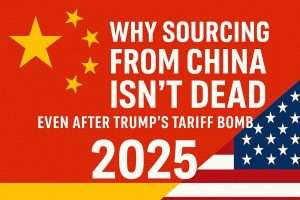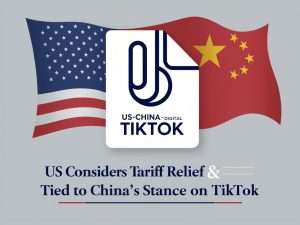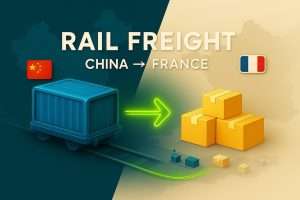Introduction
Did you know that the global market for phone cases is projected to reach an astonishing $35 billion by 2025? This booming industry reflects not just the ubiquity of smartphones, but also the diverse demands of consumers for style, protection, and functionality in their phone cases. With such a vast market, importing phone cases from China, the manufacturing hub of the world, offers immense opportunities for businesses.
In this dynamic landscape, HAI International Holding stands out as a pivotal player. Specializing in freight forwarding, HAI International Holding bridges the gap between Chinese manufacturers and global markets. But what makes HAI International Holding the go-to choice for importers around the globe?
The Role of HAI International Holding in Global Trade
HAI International Holding excels in simplifying the complex web of logistics, customs, and regulations involved in international trade. Known for their expertise in navigating the intricate processes of importing from China, they ensure a smooth, cost-effective, and timely delivery of goods, including the ever-popular phone cases.
Why Import Phone Cases from China?
China’s dominance in manufacturing, coupled with its advanced supply chain and logistics capabilities, makes it a lucrative source for importing phone cases. However, tapping into this market requires a deep understanding of customs tariffs, quality standards, and import regulations.
In the upcoming sections, we’ll delve into the key aspects of importing phone cases from China, backed by practical tips and essential insights, all tailored to help you navigate this journey successfully with HAI International Holding. From calculating duties and taxes to ensuring quality and compliance, this guide covers it all.
Stay tuned as we embark on this comprehensive journey into the world of importing phone cases from China – a venture that promises both challenges and immense rewards.
Understanding Customs Tariffs and Taxes on Phone Case Imports

Calculating Import Duties and Sales Taxes
How much will it cost to bring those trendy phone cases to your local market from China? This question isn’t just about the purchase price; it’s about understanding the additional costs that come with import duties and sales taxes. The rate of import duty varies depending on the country and the type of product. For instance, in the United States, phone cases usually fall under a specific Harmonized Tariff Schedule (HTS) code, which determines the duty rate.
To optimize your import strategy, it’s crucial to calculate these costs beforehand. For example, if you’re importing $10,000 worth of phone cases into the US, and the duty rate is 6%, your import duty will be $600. But, don’t forget the sales tax! This varies from state to state, adding another layer to your cost calculations. Utilizing tools like duty calculators or consulting with HAI International Holding experts can provide a clearer financial picture.
Navigating Through VAT and Other Levies
VAT (Value-Added Tax) is another critical aspect, especially when importing into European countries. This tax is based on the value added to the product at each stage of its production or distribution. It’s a mistake to overlook VAT, as it can significantly affect your final selling price.
For instance, importing phone cases into Germany requires understanding the standard VAT rate of 19%. Let’s say you’re importing phone cases worth €20,000. The VAT would be an additional €3,800. Knowing these figures helps in pricing your products competitively.
Licensing Requirements for Importing Phone Cases

Identifying Necessary Permits and Licenses
Do you need a special license to import phone cases into your country? This varies widely. In many cases, general import licenses are sufficient, but some countries have specific requirements, especially for products that come into direct contact with the consumer, like phone cases.
For instance, in some regions, there are safety standards that phone cases must meet to be eligible for import. Failing to comply with these standards can result in your shipment being held up at customs, leading to delays and additional costs.
How to Obtain Import Licenses
Obtaining an import license can seem daunting, but with the right guidance, it’s a straightforward process. The first step is to contact your country’s trade or customs department. They provide the necessary forms and guidelines. In most cases, you’ll need to provide details about your business, the type of goods you’re importing, and your supplier information.
HAI International Holding can play a pivotal role here, guiding you through the licensing process. Their expertise ensures you have all the necessary paperwork in order, which is crucial for a smooth importation process. For instance, if you’re a small business in France looking to import phone cases, HAI International Holding can help navigate the French customs regulations, ensuring you meet all legal requirements efficiently.
Ensuring Quality and Safety Standards

Quality Control Measures for Phone Cases
How can you guarantee that the phone cases you import are of high quality and safe for your customers? This is where quality control measures come into play. It’s crucial to establish a process to ensure that your products meet specific standards. For instance, implementing a pre-shipment inspection can help identify any defects or quality issues before the products leave China.
You might want to consider factors like material durability, design accuracy, and color fidelity. For example, if you’re importing silicone phone cases, check for issues like elasticity and tear strength. Collaborating with a reliable quality control agency or leveraging the expertise of HAI International Holding can help ensure that these standards are met consistently.
Compliance with Safety Standards
When it comes to safety, various countries have different regulations. For example, the European Union has strict guidelines under the REACH regulation, which ensures that products like phone cases do not contain harmful substances.
It’s important to verify that the phone cases you’re importing comply with these safety standards. For instance, ensuring that they are free from toxic materials like certain phthalates, which are banned in many regions. Non-compliance not only risks the health of the end-users but also exposes your business to legal repercussions.
Essential Documentation for Importing Phone Cases

Preparing the Required Paperwork
Do you know which documents are essential when importing phone cases into your country? Proper documentation is key to a smooth customs clearance process. This typically includes a commercial invoice, a packing list, and a bill of lading or air waybill.
The commercial invoice should detail the value, quantity, and description of the goods, while the packing list enumerates the contents of each package. For example, if you’re importing 10,000 phone cases, the packing list should accurately reflect this quantity and the specifics of how they are packed.
Understanding Customs Declarations and Invoices
Navigating through customs declarations can be complex, but it’s essential for legal compliance. These documents provide customs authorities with information about your goods, including their destination, purpose, and value.
Inaccuracies in these documents can lead to delays, fines, or even seizure of goods. Therefore, it’s crucial to ensure that all information on the customs declaration aligns with that on the commercial invoice and packing list. HAI International Holding can assist in this process, ensuring that all paperwork is accurate and compliant with international trade regulations.
Timeframe for Importing Phone Cases

Estimating Shipping Times
How long does it take to get those stylish phone cases from China to your store shelves? Understanding the shipping times is crucial for managing your inventory and meeting customer expectations. Typically, sea freight from China to the US can take about 30-40 days, while air freight might take 5-10 days. However, these timelines can vary based on factors like port congestion, customs clearance, and the efficiency of your freight forwarder.
For example, during peak seasons like the Chinese New Year, shipping times can significantly increase. Therefore, working with an experienced forwarder like HAI International Holding can help anticipate and mitigate these delays, ensuring your products arrive on time.
Planning for Inventory and Sales
Effective inventory management is key to avoiding stockouts or overstock situations. By understanding the shipping timelines, you can plan your orders to align with your sales cycles. For instance, if you run an online store with a high demand for phone cases during the holiday season, you’ll want to place your orders well in advance to ensure timely arrival and sufficient stock.
Integrating tools like ERP (Enterprise Resource Planning) software can aid in forecasting demand and managing inventory more efficiently, allowing you to optimize your sales and storage costs.
Finding Reliable Phone Case Suppliers in China

Conducting Supplier Research
Where do you find a phone case supplier in China that you can trust? The process starts with thorough supplier research. You’ll want to look for suppliers with a strong track record of quality and reliability. Online platforms like Alibaba or Global Sources can be good starting points, but they require careful vetting.
Checking supplier references, reviewing their production capabilities, and assessing their quality control processes are essential steps. For example, visiting a potential supplier’s manufacturing facility, either in person or virtually, can provide valuable insights into their operations and product quality.
Building Trustworthy Supplier Relationships
Once you’ve identified potential suppliers, the next step is building a relationship based on trust and mutual respect. Effective communication is key here. You’ll want to clearly communicate your quality standards, delivery expectations, and any other specific requirements.
For instance, if you’re sourcing eco-friendly phone cases, make sure your supplier understands the materials and certifications you require. Long-term partnerships can lead to better pricing, priority production schedules, and a deeper understanding of your business needs. HAI International Holding can facilitate these relationships, leveraging their local presence and language skills to bridge any cultural and communication gaps.
Restrictions and Prohibitions in Phone Case Import
Navigating Legal Restrictions
Are you aware of the legal restrictions that could affect your phone case import business? It’s essential to be well-informed about the legal restrictions that apply to importing phone cases into your country. For example, some countries have specific regulations regarding the materials used in phone cases, particularly if they contain hazardous substances.
In the EU, phone cases containing certain chemicals might fall under the scope of the REACH regulation, requiring compliance with strict safety standards. Failure to comply can lead to your shipment being seized or fined. Therefore, it’s crucial to stay updated on these legal requirements, possibly through regular consultations with HAI International Holding, which stays abreast of the latest regulatory changes.
Understanding Import Prohibitions
Do you know if there are any outright prohibitions on importing certain types of phone cases? Some countries may have import prohibitions on certain goods due to various reasons like environmental concerns or protection of local industries. For instance, phone cases made from endangered species or materials that are considered harmful to the environment might be banned in some regions.
Staying informed about these prohibitions is vital to avoid costly mistakes. Regularly checking with customs authorities or leveraging the expertise of HAI International Holding can help ensure you’re not importing prohibited items.
Risk Management in Phone Case Importation
Identifying Common Risks
What risks should you be prepared for when importing phone cases from China? Importation involves several risks, including logistical delays, damage during transit, and customs clearance issues. For example, port strikes or bad weather can lead to significant delays, disrupting your supply chain.
It’s also not uncommon for goods to get damaged during long sea voyages. Understanding these risks and their impact on your business is the first step in effective risk management.
Strategies to Mitigate Risks
How can you minimize the risks associated with importing phone cases? Implementing robust risk mitigation strategies is crucial. This might involve diversifying your supplier base to avoid reliance on a single source, choosing reliable shipping routes, or investing in comprehensive insurance coverage.
For instance, using just-in-time (JIT) inventory management can reduce the risk of overstocking and obsolescence. Additionally, partnering with a reliable logistics provider like HAI International Holding can offer valuable support in managing these risks, ensuring smoother, more predictable import operations.
Calculating the Total Cost of Importation
Breakdown of Importation Costs
Do you know how much it really costs to import phone cases from China? Understanding the total cost of importation is more than just the product price. It includes several factors like shipping fees, insurance, customs duties, taxes, and potential storage costs. For instance, if you order $15,000 worth of phone cases, shipping might add another 10-15%, customs duties could be 5-10%, and other fees might add up to an additional 5%.
It’s essential to calculate these costs accurately to determine your final landed cost and set competitive pricing. Tools like online duty calculators or consulting with HAI International Holding can provide a more accurate estimate of these expenses.
Cost Optimization Strategies
How can you reduce the overall cost of importing phone cases? Implementing cost optimization strategies can significantly impact your bottom line. This could involve choosing the most cost-effective shipping method based on your timeline and budget, negotiating better terms with suppliers, or consolidating shipments to save on freight costs.
For example, opting for sea freight instead of air freight can be more economical for large, less time-sensitive orders. Additionally, working with a logistics partner like HAI International Holding can help identify and implement these cost-saving strategies effectively.
Environmental and Ethical Considerations
Understanding Environmental Regulations
Are you aware of the environmental regulations affecting the import of phone cases? Many countries are tightening environmental regulations, especially regarding products like phone cases, which might contain plastic and other non-biodegradable materials.
For instance, the EU’s Waste Electrical and Electronic Equipment (WEEE) Directive imposes specific requirements on the disposal and recycling of electronic accessories, including phone cases. Ensuring compliance with these regulations is not only crucial for legal reasons but also for maintaining a responsible corporate image.
Ethical Sourcing of Phone Cases
How does ethical sourcing play into your import strategy? In today’s market, consumers are increasingly concerned about ethical production practices. This includes labor conditions, fair wages, and sustainable materials.
For example, sourcing phone cases made from recycled materials or produced in factories with fair labor practices can significantly enhance your brand’s value and appeal. Collaborating with suppliers who share these values and working with logistics partners like HAI International Holding that are committed to ethical practices can help align your business with these important consumer trends.
Conclusion
Have you captured the essential insights to successfully import phone cases from China? Let’s summarize the key points: navigating through customs tariffs and taxes, understanding licensing requirements, ensuring quality and safety standards, preparing the essential documentation, and managing the timeframe for importing. It’s also crucial to consider supplier reliability, legal restrictions, risk management, and the total cost of importation. Moreover, environmental and ethical considerations play a significant role in today’s global trade environment.
Implementing these strategies effectively can lead to a successful import business. With the right approach and a partner like HAI International Holding, navigating the complexities of importing becomes more manageable, allowing your business to thrive in the competitive market of phone cases.
Frequently Asked Questions
What are the most common challenges in importing phone cases from China?
The most common challenges include dealing with logistical delays, customs clearance, navigating legal and quality requirements, and managing supplier relationships. Understanding these challenges is the first step towards overcoming them.
How does HAI International Holding facilitate the import process?
HAI International Holding simplifies the import process by offering expert guidance on logistics, customs procedures, and documentation requirements. They help in navigating the complexities of international trade, ensuring a smoother, more efficient import process.
Can small businesses also import phone cases affordably?
Yes, small businesses can import phone cases affordably by choosing the right shipping methods, optimizing order quantities, and working with cost-effective suppliers. Strategic planning and good logistics partnerships are key to making imports affordable.
What are the latest trends in phone case design and materials?
Current trends in phone case design include sustainable materials, innovative protection technologies, and customizable designs. There's a growing demand for eco-friendly materials like biodegradable plastics and recycled elements.
How can importers stay updated on changing import regulations?
Importers can stay updated on changing regulations by subscribing to trade newsletters, regularly consulting with customs experts and logistics partners like HAI International Holding, and participating in industry seminars and webinars. Staying informed is crucial in the dynamic landscape of international trade.












